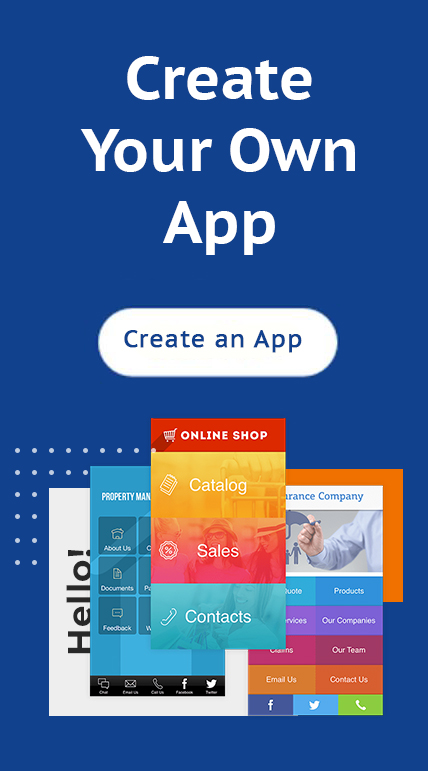Why Companies are Turning to No-Code App Development Platforms
Many companies across all industries are increasingly turning to no-code app development solutions when creating mobile applications. They are taking advantage of these new platforms and enabling their workforce to take app development into their own hands to create the apps that suits them.Companies such as Vine Tech Equipment and the Hawaiian Dredging Construction Company are some of the top organizations that have turned to no-code app development platforms. Vine Tech app, for instance, leveraged the iBuildApp no-code platform and was designed to help users easily access information on how to calibrate sprayers for tree and vine crops, vineyard, orchard, berries, citrus among others.
The Hawaiian Dredging Construction Company, on the other hand, leverages iBuildApp tools in its app to seamlessly deliver content to employees, which has made the workforce more mobile and even allowed for employees to easily address health, safety and environmental issues while in the field. The HDCC app provides a beautiful homepage, with links to HSE policy videos, observations, HSE program content and direct contact to the HSE department. Therefore, HDCC’ employees are constantly connected, they can view policies and they don’t have to think twice about where they need to go to make a compliant or give feedback.
Through this primer we seek to assess the concept behind no-code solutions and how companies stand to benefit.
No-code Platforms: Reinventing app development
In the past, in order to develop a custom mobile application, you had to commission work from developers in the IT department. However, with no-code solutions, app development is now within reach of nearly every department within a company. In fact, numbers from a research by Forrester notes the total spending on the no-code market is projected to reach $21.2 billion by 2022, representing a compound annual growth rate of roughly 40%.Let’s have a detailed look at why many companies are increasingly turning to no-code platforms.
- Easier and cheaper
Users interact with graphical models and configure pre-built application components to develop functional mobile applications. This allows companies to create complex applications without necessarily having coding skills.
On a similar note, leveraging no-code platforms is cheaper compared to finding a developer to build your app from scratch which can cost as much as $250, 000 or even more.
The emergence of no-code app development solutions means that organizations can now develop mobile applications at lower cost (think around $25 to $50 per month), and within the shortest time possible.
- Advanced Security Features
- The cost of the average data breach to enterprises worldwide stands at a whopping $3.86 million.
- While the cost of the average data breach to a U.S. company stands at $7.91 million.
- The average time it takes to identify a data breach is 196 days!
Companies are increasingly turning to no-code solutions largely due to their robust features that guarantee secure mobile applications and also mitigate their exposure to risks (especially from shadow IT).
- Facilitate Digitization
According to a survey that was conducted on small and medium enterprise owners, 77 percent of them believe a digital presence helps with customer acquisition. While 63 percent of them note a digital presence could also improve the image of the company. No-code app development solutions can enable companies to enhance digital customer engagement and digital process automation and, thus meet the modern day customer needs and maintain a competitive advantage.
On the same note, a study by the University of Alabama at Birmingham Collat School of Business shows that 40 percent of companies have employees who lack digital skills; resulting to as much as 20 percent in lost productivity. However, with no-code solutions companies can solve this issue and even avoid hiring and retaining expensive IT talent.
These platforms can help improve employee engagement by enabling them develop digital skills. That is, they enable citizen developers to build powerful applications and this translates into improved engagement and ultimately, more productivity.
Final Thoughts
Mobile app development has really evolved tremendously thanks to no-code app development platforms. The whole process is now spreading from the IT department to all departments within an organization, from software developers to employees with no coding skills, and from big corporations to small businesses that can now compete favourably with established companies.With no-code solutions, organizations no longer have to worry about long software development cycles and how to bring new apps to market quickly. They don’t have to hire and retain expensive IT talent which is good for the bottom line.
